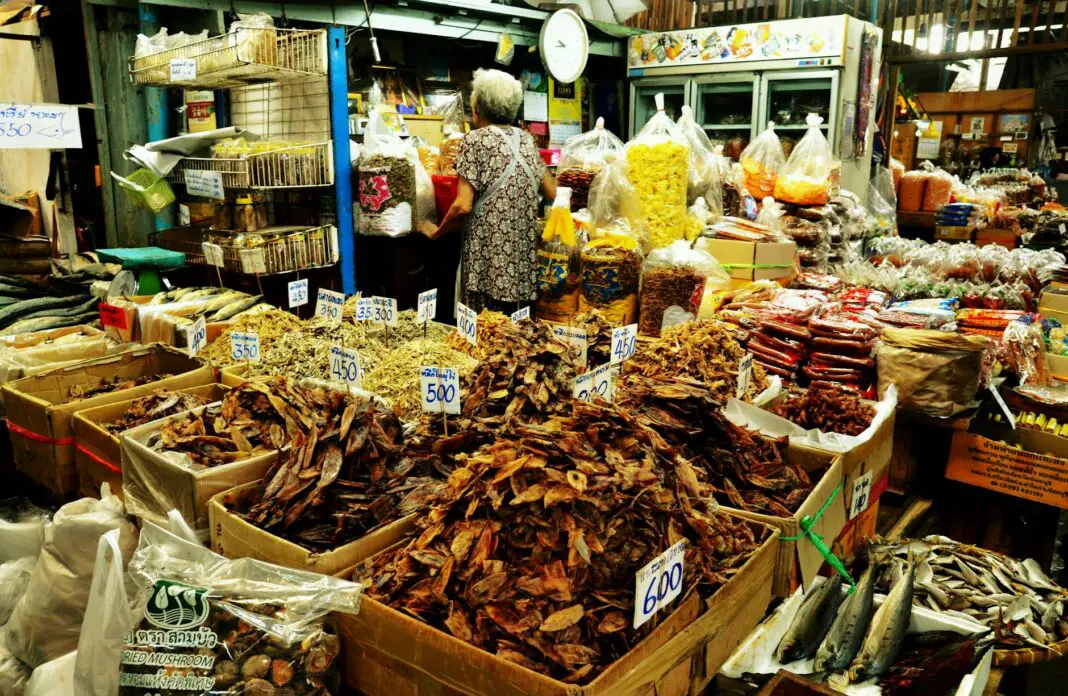Thailand is an enchanting destination that captivates millions of travelers each year with its stunning landscapes, rich culture, and delectable cuisine. However, navigating its vibrant markets requires more than just a love for exploration; mastering the art of bargaining can unlock a treasure trove of experiences and savings. This blog post dives deep into Thailand’s hidden markets and reveals the secret bargaining tactics that will empower you to shop like a local, snagging the best deals while immersing yourself in the captivating ambiance of Thailand.
Whether you’re wandering through the bustling street stalls of Bangkok or the serene night markets of Chiang Mai, knowing how to negotiate effectively can dramatically enhance your travel experience. This article aims to equip you with everything you need to know about bargaining in Thailand, from cultural nuances to practical tips. So, get ready to step off the beaten path and discover the vibrant pulse of Thailand’s markets while becoming a savvy traveler who knows how to score great deals!
Table of Contents
- Understanding Thai Culture and Bargaining Etiquette
- Choosing the Right Market for Shopping
- Preparing Your Bargaining Strategy
- Best Bargaining Tactics to Use
- Real-Life Examples of Successful Bargaining
- Final Thoughts on Capitalizing on Thailand’s Markets
Understanding Thai Culture and Bargaining Etiquette
Before diving into the art of bargaining, it’s crucial to recognize the significant role culture plays in the Thai marketplace. Thai people are known for their warm hospitality and friendly demeanor, making interactions in markets a delightful experience. Approaching your bargaining journey with respect and politeness can set the tone for successful negotiations. Always greet vendors with a smile and show appreciation for their products, as this fosters a positive atmosphere.
It’s also important to understand that bargaining is not merely about haggling; it’s a social exchange that showcases your willingness to engage with the local culture. Keep in mind that excessive aggression can be perceived as disrespectful, so maintain a light-hearted yet determined attitude. Remember that a genuine connection can lead to better deals, creating a win-win situation for both you and the vendor.
Choosing the Right Market for Shopping
Thailand is dotted with an array of markets, each offering unique vibes, products, and pricing structures. Whether you’re venturing into weekend markets or exploring hidden gems tucked away from tourist hotspots, selecting the right market can greatly influence your shopping experience. Popular destinations such as Chatuchak Weekend Market in Bangkok are renowned for their vast variety, attracting both locals and travelers.
Alternatively, the tranquil Night Bazaar in Chiang Mai provides a more relaxed atmosphere, featuring handcrafted items and local delicacies. Research the market’s specialties before your visit; for instance, if you’re seeking traditional handicrafts, head to markets like the Arts and Crafts Market in Chiang Mai. By tailoring your shopping destinations, you increase the likelihood of finding unique treasures while enhancing your overall experience in the vibrant heart of Thailand.
Preparing Your Bargaining Strategy
Equipped with a solid understanding of market culture, the next step involves formulating your bargaining strategy. Before engaging with vendors, it’s beneficial to establish your budget and identify the maximum price you’re willing to pay for specific items. This helps maintain focus during negotiations and prevents overspending. Additionally, familiarize yourself with the typical price range for products similar to what you are interested in to avoid overpaying.
Consider visiting several vendors to compare prices and gauge how much items fluctuate. Furthermore, practicing a few key Thai phrases can create rapport with vendors and often lead to more favorable terms. Simple phrases like “how much” and “too expensive” can demonstrate respect for their language, encouraging sellers to reciprocate with better prices. These preparatory steps not only enhance your bargaining success but also deepen your connection to the local culture.
Best Bargaining Tactics to Use
Now that you’ve laid the groundwork, it’s time to explore the best bargaining tactics that can significantly enhance your negotiation skills. One effective approach is to employ the ‘walk away’ tactic; if the vendor’s initial offer doesn’t meet your budget, feign disinterest and start walking away. Often, vendors may call you back with a better price, recognizing your potential in negotiating. This technique empowers you while gently nudging sellers to consider your budget seriously.
Additionally, be prepared to share a lighthearted joke or engage in playful banter. Humor is a wonderful way to build camaraderie, lowering tensions and making the negotiation process enjoyable. If you sense the vendor is hesitant to budge on price, offer a counter-price that is reasonable yet lower. Patience is key; allow them time to consider your offer without pressure. Each of these tactics invites a more relaxed atmosphere that encourages the vendor to agree to terms that benefit both parties.
Real-Life Examples of Successful Bargaining
To illustrate the effectiveness of these bargaining tactics, consider the experience of a traveler named Sarah. During her visit to the vibrant Chatuchak Weekend Market, she spotted a stunning pair of handcrafted earrings. The initial price of 800 baht felt a bit steep; applying what she learned, she smiled warmly at the vendor and started chatting about the craftsmanship of the product. When the vendor couldn’t meet her proposed price of 500 baht, she playfully glanced away, catching the vendor’s eye. To her delight, he called her back, offering the earrings for 600 baht. Sarah walked away not only elated but with a newfound confidence in her bargaining skills!
Another traveler, Jake, opted for a rustic wooden carving at a shop in Chiang Mai. Initially quoted 1,200 baht, he utilized his negotiating strategy by casually asking about the story behind the piece, showing genuine interest. As he conversed, he gradually mentioned that he had also seen similar carvings for 800 baht elsewhere. The vendor, seeing Jake’s enthusiasm and realizing the potential for a sale, quickly lowered his price to 900 baht. Such stories reflect how effective interpersonal relations can be just as powerful as price haggling, often leading to extraordinary finds and memorable experiences.
Final Thoughts on Capitalizing on Thailand’s Markets
Embarking on your Thailand adventure with the knowledge of how to navigate and effectively bargain in its delightful markets can significantly enhance your travel experience. By adopting a respectful approach and employing clever negotiation tactics, you’ll not only secure fantastic deals but also immerse yourself in the rich tapestry of Thai culture. Remember, each transaction is an opportunity to build connections, learn about local traditions, and host memories that linger long after your trip has ended.
Gaining insight into Thailand’s vibrant marketplace empowers you to be a savvy traveler. Not only will you learn the nuances of bargaining, but you’ll also uncover the beauty of engaging directly with local artisans and craftsmen. So, gear up to unleash your inner bargain hunter and transform your shopping experience in Thailand into something extraordinary, memorable, and truly rewarding!
FAQs About Bargaining in Thailand
- Is bargaining expected in Thai markets?
Yes! Bargaining is a common practice in many Thai markets. Vendors often expect customers to negotiate and may set higher initial prices, giving room for negotiation. - What items can I bargain for in Thailand?
Items such as clothing, handicrafts, souvenirs, and food items are popular for bargaining. However, prices for pre-packaged goods at supermarkets are usually fixed. - How much should I try to lower the price?
A general rule is to start bargaining at about 30 to 50 percent lower than the asking price and then negotiate from there. Each situation may vary, so be flexible. - Can I use English when bargaining?
While many vendors in tourist areas understand basic English phrases, learning a few Thai words can help build rapport and may encourage vendors to offer better prices.
Image Credit: Pexels





